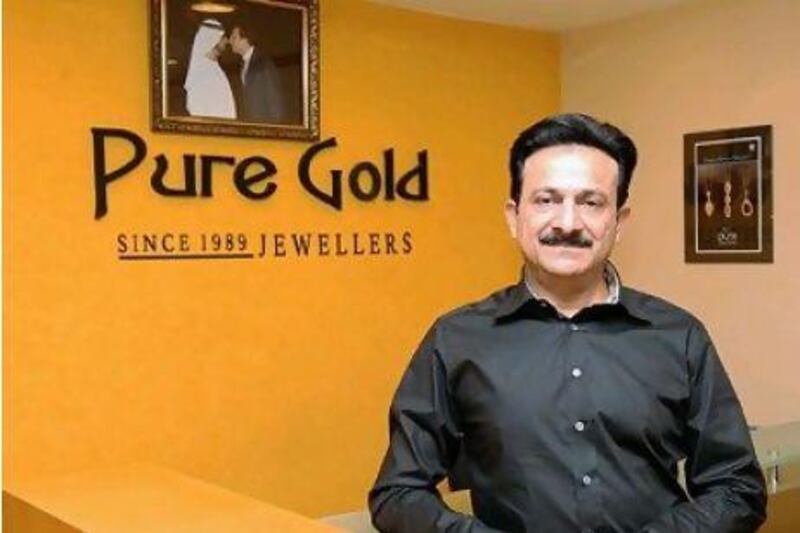For 11 years now gold has been riding a bull market.
But how long can its price continue to rise in these turbulent markets?
"Volatility is too much now," says Firoz Merchant, the chairman and founder of Pure Gold Jewellers, which operates 55 shops that sell gold jewellery in the Emirates and more than 100 across the Gulf and India. "The consumer is a little bit confused."
During the second quarter, the price of gold shot up more than 25 per cent. Today the shiny precious metal is hovering around US$1,900 an ounce and its popularity still holds plenty of lustre both here and abroad.
In Pictures:Gold
The most precious and valuable commodity.
Last week, gold was dubbed Dubai's top exported product by value, according to Dubai Exports, an agency under the Emirate's Department of Economic Development. It accounted for Dh38 billion (US$10.34bn) in value - more than half the total value of all direct exports. Put another way: exported gold totalled more than nine other products combined, including sugar and scraps of plastics.
One popular area of the local gold-buying market has been on the retail front. More than half of all gold bought in the UAE is 22 carat, while 21 carat commands about 20 per cent of the market, says Mr Merchant. Just 10 per cent of gold sold is below this weight.
There are cultural reasons for the discrepancies. Russians and Europeans tend to prefer 14 and 18-carat jewellery, but Arab customers usually go for 21 carat.
Those from South East Asia gravitate towards 22 carats, experts say. "The preference of caratage comes from the ethnic background of the consumer," says Biju Joy, the general manager of Dubai Gold & Jewellery Group, a trade organisation with about 600 members from Dubai's jewellery market.
"The caratage and colour will also depend on the source and design of the jewellery," he says. "If the jewellery is made in Europe it will be mostly in 18 carat; it may also be in white or pink gold. Jewellery made in the Indian subcontinent and Arab world will be mostly yellow in colour with some rhodium plating."
Even if jewellery is of the same carat, shoppers should scrutinise the different makes and designs. A 22-carat gold bracelet or ring could start at Dh2.50 a gram but may also cost as much as Dh40 a gram, depending on its origins and the audience it was intended for. One tip: "Look for the hallmarking on the jewellery," says Mr Joy. "It is a must for all jewellery sold in Dubai to be stamped with the producer's stamp and the caratage."
While Mr Merchant notes that certificates of authenticity are not handed out with purchases of 22-carat gold, he argues that government agencies across the Emirates regularly pop in unexpectedly to examine jewellers' wares.
"They are very strict and do random checks," says Mr Merchant. "They check purity, product price. There is strong consumer price protection."
Still, shoppers on the lookout for gold jewellery should be aware that they are supposed to receive an authenticity certificate for pieces that include precious stones, which they may be asked to show when they pass in and out of the UAE's airports. "Also make sure that you have taken the invoice, along with the description of the gold that you have bought," Mr Joy recommends.





